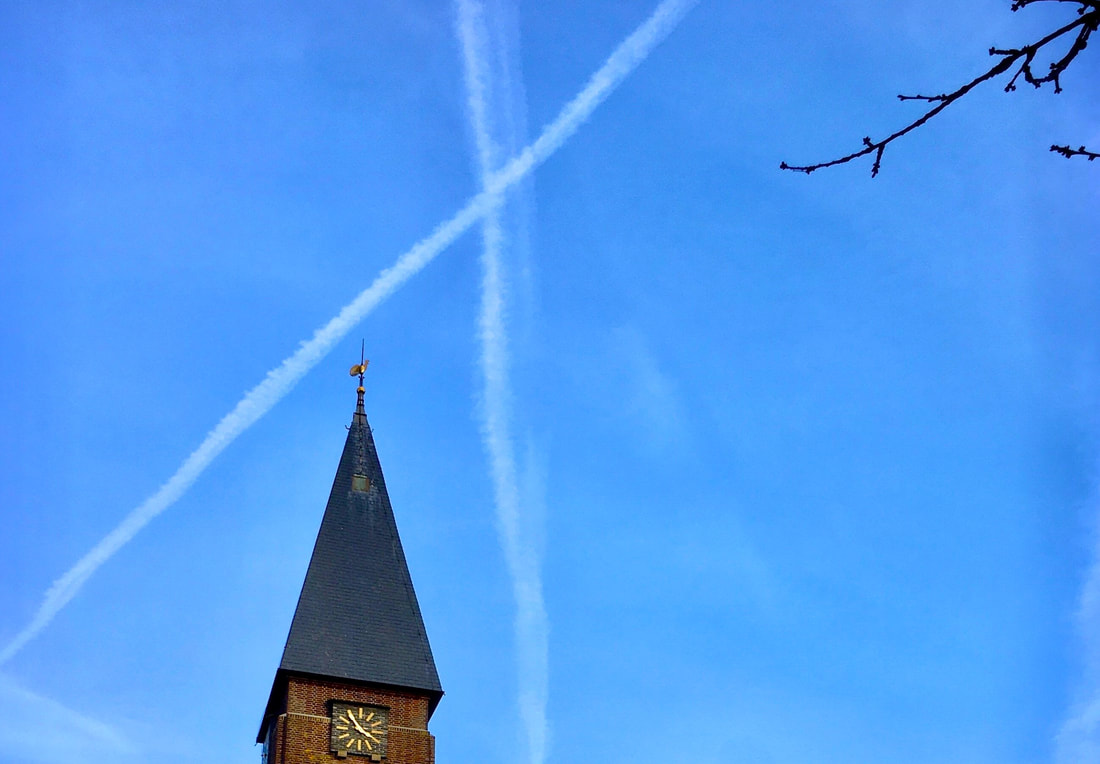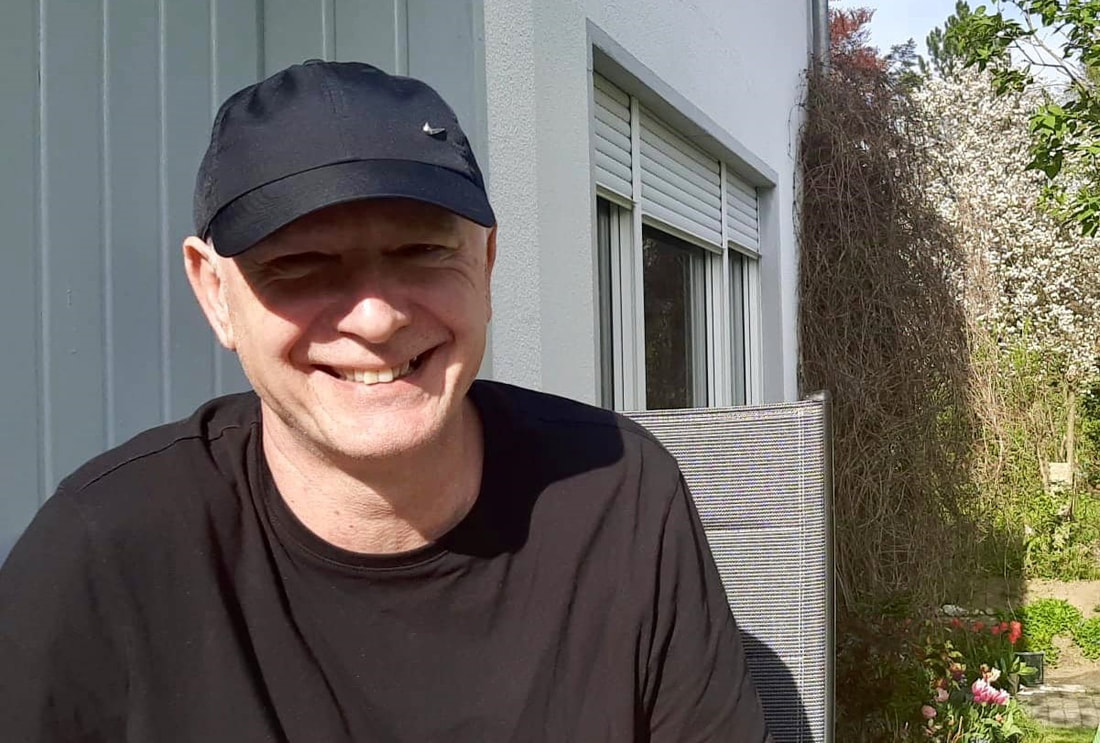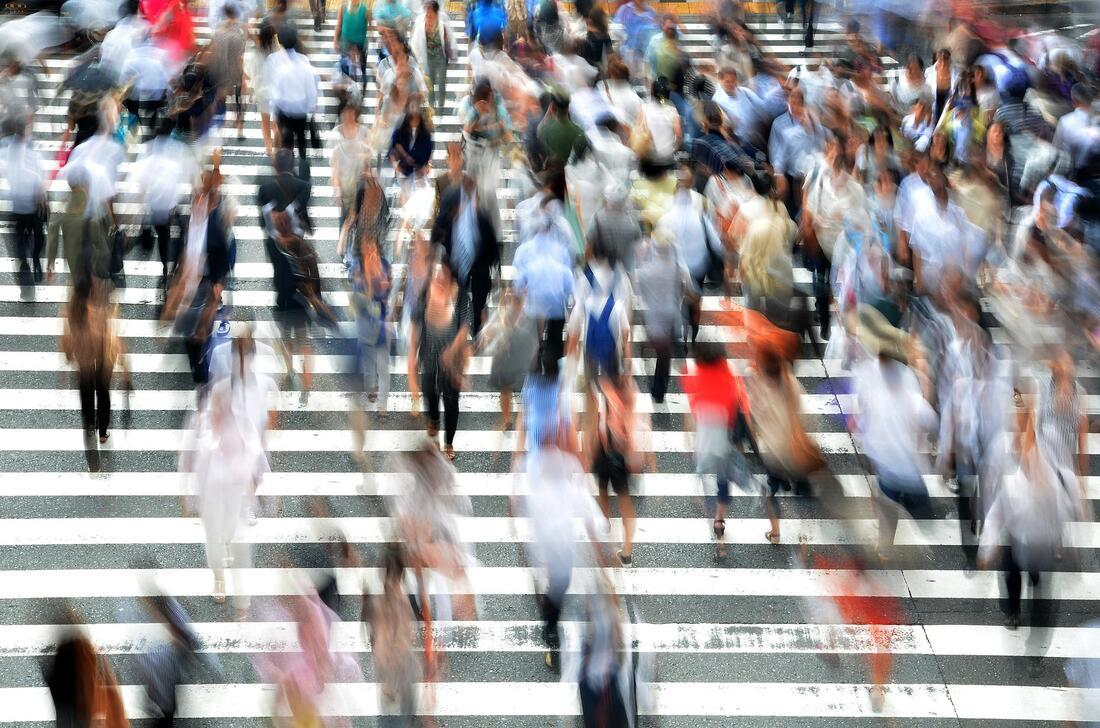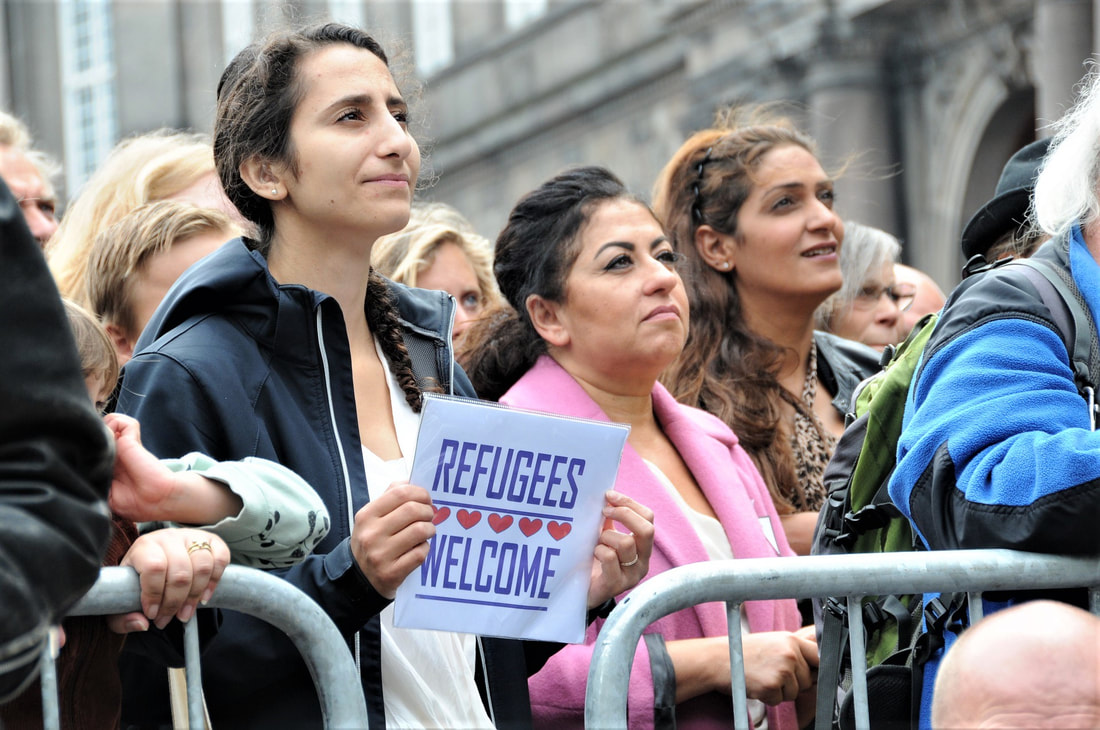|
‘Coincidence doesn't happen a third time.’ (Osamu Tezuka) I arrived in the Netherlands on Saturday, aiming to orientate myself briefly to this new country before working with an INGO team there on Monday. When I stepped into my hotel room, however, it smelt damp and sweaty. Trying not to breathe, I opened the windows to an icy blast and decided to go for a walk while the fresh air did its work. Not far away, I noticed a church building so walked over to have a glance at its meeting times. As I did so, I looked up and saw a cross in the sky, a misty symbol painted momentarily on blue canvas by vapour trails. It felt significant, but I didn’t know why. The next day, the church was full when I arrived and I sat quietly in the midst, happily surprised by how much Dutch I could understand. (I can speak German, but this was my first time to read this new language). At the end, a woman kindly introduced herself to me. On learning that I am English, she explained that the church is recovering from an intensely painful internal conflict. The pastor had spoken on a need to look to God. I showed her the photo I had taken the day before – a symbol of suffering and hope – and she started to weep. ‘God brought you here to us this morning, Nick.’ Another woman now introduced herself, explained briefly that she had worked internationally in medical mission, and invited me to a special meeting that afternoon for asylum seekers and refugees. ‘How could she possibly have known anything about my life and work?’ I asked myself, a total stranger. The guest speaker that day was a visitor from Algeria and, serendipitously, works for the same organisation I was about to work with the following day... as does a man who randomly found himself sitting beside me in a hall full of people. Was this all coincidence? I don’t believe so. You decide.
16 Comments
‘Diversity doesn’t look like anyone. It looks like everyone.’ (Karen Draper) An English guy from the UK in Germany… working alongside Mexican and Romanian English teachers to teach English to German students… whilst supporting a Liberian student to learn German… and alongside a German Mathematics teacher to introduce German students to Philippines language and culture... whilst supporting Iranian refugees with coaching. It’s an incredible privilege to be here. Every day brings new surprises. Today, I chatted with a German teacher… with an Arabic name... who sits quietly in the staff room yet spends her free time doing extreme caving and travelling to different countries around the world. I had another surprise when I shared some videos of Filipino jungle children, dancing, with two groups of German students. They spontaneously leapt up from their seats to join in. When I asked these students if any could speak another language, I was amazed by the range of their responses: Czech, Italian, Spanish, Greek, Russian, Turkish, Ukrainian. It reminded me of the power and potential of diversity, where young people see beyond national boundaries, see each other as individuals that transcend different languages and cultures, and are truly open to something, someone, new. Diversity: a problem to be solved...or an opportunity to be grasped? What do you think? 'Whatever affects one directly, affects all indirectly.' (Martin Luther King) DEI, EDI, DIE..acronyms, used interchangeably with a similar meaning. It’s the stuff of diversity, equality/equity and inclusion. If the very sight of those words makes you yawn with boredom or roll your eyes with frustration, DEI experts and advocates need to ask why. To see a glowing example of passion, creativity and inspiration in this arena, have a glance at Shine! The challenges that EDI sets out to tackle are important, complex and human. They affect very real, vulnerable and disenfranchised people in organisations and the wider world. Most DEI policies and plans I see represent implicitly: (a) a legal rights-based approach; that is, to offer protection against illegal discrimination, and ensure equality of access to opportunities and resources; and (b) a humanistic values-based approach; that is, to treat everyone respectfully as human beings, and appreciate the differences between people. Both offer a critical baseline for healthy conduct and behaviour in liberal-democratic societies. We could think of these approaches as, essentially, ideologically-based. They flow from a vision of organisations and societies in which, in particular, people and groups that are non-dominant and less-privileged are offered special protection and support so that they, alongside others, can enjoy free and fulfilling lives. They recognise a genuine risk in any group or society that less-powerful people will be and become marginalised by the cultural interests and priorities of the privileged majority. Against this backdrop, EDI initiatives often prioritise, first and foremost, legal and policy requirements as core foundations. An underlying challenge for these types of ideological approaches is how to gain and sustain traction if others, especially those in powerful positions, don’t share the same vision and values, or a desire to prioritise them. An unintended consequence of effective recent social-political lobbies such as LGBTQ+, BLM and Extinction Rebellion has been to create a silent-silenced group that, for reasons of expediency, presents a convincing, socially-presentable façade, yet with no real substance behind it or commitment to change. Climate activist Greta Thunberg calls this out as the cynical ‘Blah, blah, blah’ phenomenon. For the DEI venture to exert greater transformational influence and impact, I believe those who promote it need to become better at evaluating and demonstrating the tangible benefits of diversity: especially to the pragmatist-sceptics. It’s not enough to create and enforce laws and policies, important as they are for protection, equality and inclusion. It’s not enough to appeal for kinder, fairer and more tolerant organisations – although, as a follower of Jesus – I see such qualities as having intrinsic value. EDI's core proposition that 'diversity is a good thing' will prove far more persuasive if it can show convincingly why. I may have something useful to offer here. For many years, I have had the privilege of working internationally with leaders and professionals from diverse cultures and backgrounds. I often use a powerful, small-group, peer-coaching method called ‘Action Learning’. It enables people who face wicked problems to make better decisions, faster. Diversity in such a group is a critical success factor because it enables a person to unpack an issue, stress-test her or his assumptions and create innovative solutions – precisely because peers pose stretching questions from vastly different perspectives and experience-bases. One organisation I worked with had a strong commitment to DEI. It employed people from a wide range of countries and backgrounds and worked hard to ensure that everyone was treated in the same way. Ironically, its efforts had inadvertently blinded it to the value of difference. It missed completely the significant potential that such diversity can offer when running projects, dealing with challenging issues etc. I invited the leaders to engage in a simple experiment – to create problem-solving and innovation teams based on radical diversity as the key team criterion, irrespective of formal role. The results were truly astonishing. As EDI progresses, develops and learns, I believe that this kind of testing, evidencing and presenting of practical benefits, alongside issuing or enforcing an ethical call, will prove vital and fruitful. It will be an invaluable area for further research. I work with asylum-seekers and refugees who often feel depressed and frustrated by being characterised as helpless victims, rather than as resourceful contributors who want to show they can make a difference. Legal rights-based and humanitarian values-based approaches to DEI are a critical bedrock. A benefits-outcomes approach could ensure an additional life-giving dimension. Turn on the TV and you will see heart-breaking scenes of streams of desperate people, frightened, shell-shocked and displaced by war, fleeing within Ukraine or escaping across crowded borders into neighbouring countries. It’s a tragic and all-too-familiar scene. Not that long ago, we witnessed similar images of dispossessed and traumatised people, at that time clinging together in crowded boats or walking on long roads, trying to reach safety away from the ravages of a brutal war in Syria. It's tempting, in such circumstances, to compare and contrast. Why, for instance, is Poland throwing its doors wide open to Ukrainian refugees whereas it was decidedly reluctant to do so for Syrian refugees? Is this evidence of endemic racism? It is because Ukrainians are white, because they ‘look like us?’ – as more than one TV reporter asked this week. These are important questions... and they also risk pitching one set of refugees against another, as if competing for empathy and support. I’ve had the personal privilege of working in the UK alongside asylum-seekers and refugees from countries as diverse as Afghanistan, China, Congo, Egypt, El Salvador, Eritrea, Honduras, Iran, Iraq, Kurdistan, Mali, Mexico, Somalia, Sudan, Syria, Turkey, Vietnam and Yemen. Up-close, every person is unique, has a name, and carries his or her own lived experience, his or her own individual story. Step back, and we can discern patterns shaped by e.g. culture, history, language, narrative and geopolitics. In some significant respects, I believe European public discourse concerning the Ukrainian refugee situation is different to that in 2015. Geopolitical factors include: Ukraine borders directly with Europe, vs Syria lays at a geographical distance; Ukraine is perceived primarily as an invasion by a foreign power, vs Syria was viewed primarily as a civil war; Ukraine is perceived in simple terms as a ‘hero’ against a ‘villain’, vs Syria was perceived as a complex conflict between multiple ‘villains’. Cultural factors include: Ukrainian refugees are perceived as culturally- and pro-European, vs asylum-seekers in 2015 who came from a diverse range of countries and cultures – often perceived as hostile to European liberal values and cultures; Ukrainian refugees are primarily women and children and, therefore, considered most-vulnerable and least-threatening, vs asylum-seekers in 2015 were perceived as primarily men and, therefore, considered least-vulnerable and most-threatening. If we are willing to pause and reflect openly, honestly and critically, we can see that the stance we take reveals all kinds of underlying personal and cultural beliefs, values, assumptions and biases – including whom we consider worthy, or not, and why. The media plays a very powerful role since most of what we believe and think we know about asylum-seekers and refugees is mediated via media. The ‘news’ is a blend of info and drama, with an agenda. Let’s not fan the flames of a refugee war. (For further reading in this area, see: Alexander Betts & Paul Collier, Refuge: Transforming a Broken Refugee System (2018)) |
Nick WrightI'm a psychological coach, trainer and OD consultant. Curious to discover how can I help you? Get in touch! Like what you read? Simply enter your email address below to receive regular blog updates!
|







 RSS Feed
RSS Feed